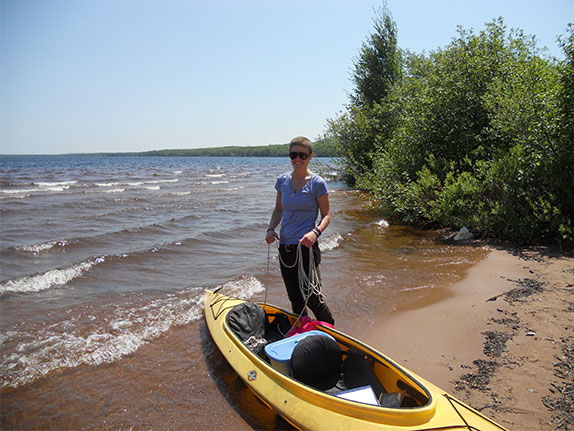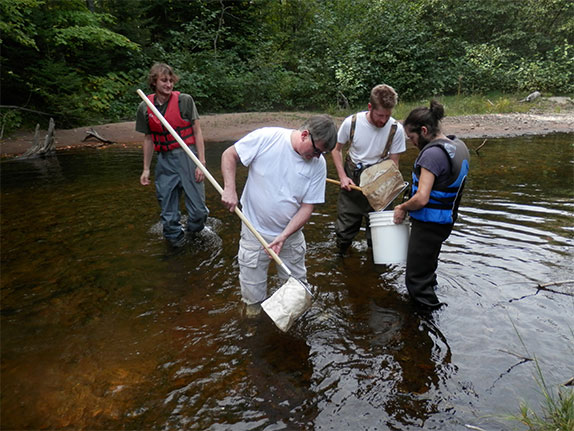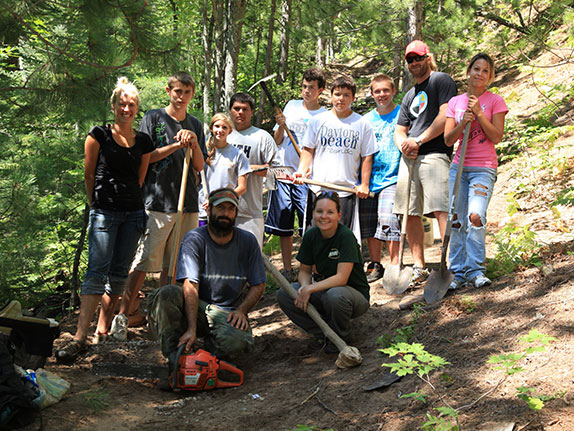
Battery
Recycling Project
Residents of Marquette County are now able to recycle their household batteries that , in the past, would have ended up in the landfill thanks to the community partnership that has worked on the development of this program.
How it Works
1. Collect your household batteries, including non-rechargeables, rechargeables, lithium, and button, and bring them to one of the drop sites listed below. Place your batteries in one of the brown recycling bins that say “Batteries Only”.
2. From there, our volunteers pick up the batteries and transport them to the Marquette County Solid Waste Authority. The public should not bring their batteries directly to the County Waste site. Batteries are sorted into their respective types and then directed to their processing destinations.
Drop Sites
Marquette Food Co-op (906) 225-0671
502 West Washington Street, Marquette, MI 49855
Messiah Lutheran Church (906) 225-1119
305 W. Magnetic Street, Marquette, MI 49855
Bothwell Middle School (906) 225-4262
1200 Tierney Street, Marquette, MI 49855
St. Vincent de Paul (906) 346-5610
111 North Pine St., Gwinn, MI 49841
Peter White Public Library (906) 228-9510
217 N Front St., Marquette, MI 49855
U.S. National Ski Hall of Fame (906) 485-6323
610 Palms Avenue, Ishpeming, MI 49849
St. Vincent de Paul (906) 376-2400
2119 Presque Isle Avenue, Marquette, MI 49855
St. Vincent de Paul (906) 376-2400
316 Kloman Avenue, Republic, MI 49879
Yellow Dog Watershed Preserve (906) 345-9223
303 Bensinger Drive, Big Bay, MI 49808
Superior Watershed Partnership and Land Trust (906) 228-6095
2 Peter White Drive, Marquette, MI 49855
St. Vincent de Paul (906) 486-4237
322 Cleveland Avenue, Ishpeming, MI 49849
Cartridges & More (906) 228-4140
1209 N. Third Street, Marquette, MI 49855
What Happens to the Batteries?
1. Alkaline (non-rechargeable): These batteries get placed into a machine called a hammermill. The machine then crushes the batteries so the metal, carbon, and plastic can all be separated. The metal is picked out using magnets, then sent to a recycling facility. The plastic is also recycled. Additionally, the Waste Authority is looking into ways to use the leftover carbon at this time.
2. Rechargeables and lithium: These batteries get sent out to a larger facility that specifically handles that type of battery.
3. Button: These batteries cannot be “recycled” unfortunately but they do need to be diverted from regular household waste because they contain mercury. They get put into hazardous waste where they belong.
The great thing about the design of this program is that the consumer, you, can put all of your batteries into the bins and they will get sent to the right place and the maximum amount of material will be recycled. Often times in landfills, large amounts of battery acid (hydrochloric acid) can begin to break down the liner system that is in place and cause threat to local water systems. There are trace metals in batteries that could potentially leak out depending on the liner system. Batteries, even alkaline ones, often have small amounts of tin, nickel, mercury, and manganese. Our goal is to keep these from the water and also reduce the need for more raw materials.
Need for the Program
It was apparent that there was a community desire to remove batteries from the waste stream for many years now, but it was put into action in 2007 by the Yellow Dog Watershed Preserve. “I thought a lot about metals and the consumer drive that spurs mining. I began looking for ways to reduce the need to mine and recycling was one of the things we came up with. Batteries in particular have a lot of minerals such as nickel, lithium, mercury, and iron that end up in the garbage,” says Emily Whittaker, Executive Director of the Yellow Dog Watershed Preserve. Whittaker began working with the Marquette Food Co-op to collect small amounts of batteries and transport them to a battery recycling drop site in lower Michigan. It didn’t take long before the demand was more than the small program could handle. Both groups began talking with the Marquette County Solid Waste Authority about finding a local solution that had greater capacity. Rick Aho, the Landfill Supervisor, agreed that batteries in the household waste stream are problematic. Aho suggested a machine called a hammermill that has the capacity to shred or crush aggregate material into smaller pieces.
YDWP then wrote a grant to purchase a hammermill for battery recycling and it was funded by the Marquette County Community Foundation. Groups that supported the program include Northern Michigan University, Marquette Food Co-op, Superior Watershed Partnership, and Marquette Citizens for Peace and Justice. The groups began meeting to design the program and are happy to see it up and running. “We are so glad to be able to support this type of project,” says Maura Davenport of the Marquette County Community Foundation. “It truly is a great example of a community coming together to solve important issues.”
While the start-up funds were provided by the Community Foundation, each partner will play a role in maintaining the program as well as its growth. Additionally, there is opportunity for citizens to become involved through volunteering. Volunteers are needed to assist in pickup, transport, and upkeep of drop sites. “We will need volunteers to help keep the program running smoothly and I encourage anyone who uses the program to think about pitching in,” says Natasha Gill, Outreach Director of the Marquette Food Co-op.
Contact Us for Info or to Volunteer
Email us at ydwp@yellowdogwatershed.org or call 906-345-9223
Recent Posts

30th Anniversary Celebration
26 Jun, 25

2025 Fly-fishing Workshop on the Yellow Dog
11 Jun, 25

2025 Bentley Trail Ski & Snowshoe Event
07 Feb, 25

2024 Annual Meeting and Hike, 10/26
07 Oct, 24






